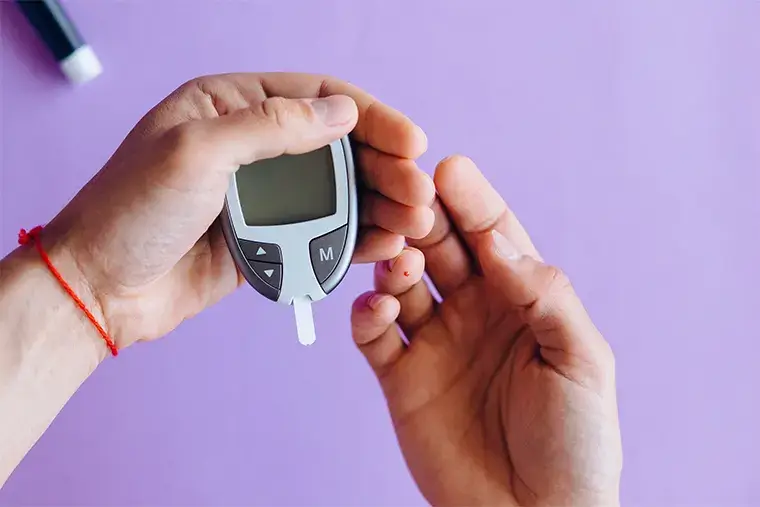Understand the Diabetic Neuropathy
Diabetic neuropathy is a type of nerve damage that can occur as a result of long-term high blood sugar levels in people with diabetes. This condition affects the peripheral nerves, which are responsible for transmitting signals from the brain and spinal cord to the rest of the body.
The symptoms of diabetic neuropathy can vary depending on the type of nerve damage and the location of the affected nerves. Some of the most common symptoms include:
- Tingling, numbness, or burning sensations in the hands or feet
- Muscle weakness and loss of coordination
- Digestive problems, such as nausea, vomiting, and constipation
- Erectile dysfunction in men
- Bladder problems, such as urinary incontinence or difficulty emptying the bladder
There are four types of diabetic neuropathy:
- Peripheral neuropathy: This type of neuropathy affects the peripheral nerves, which are responsible for transmitting sensory information, such as pain and temperature, from the body to the brain. Peripheral neuropathy can cause numbness, tingling, or burning sensations in the hands and feet.
- Autonomic neuropathy: This type of neuropathy affects the nerves that control involuntary body functions, such as digestion, heart rate, and blood pressure. Autonomic neuropathy can cause digestive problems, such as nausea, vomiting, and diarrhea, as well as bladder problems, sexual dysfunction, and changes in blood pressure and heart rate.
- Proximal neuropathy: This type of neuropathy affects the nerves in the thighs, hips, or buttocks, and can cause severe pain and weakness in these areas.
- Focal neuropathy: This type of neuropathy affects a single nerve, usually in the face, torso, or leg. It can cause sudden weakness or pain in the affected area.
The risk of developing diabetic neuropathy increases with the duration of diabetes, as well as poor blood sugar control, high blood pressure, and high cholesterol levels. Other risk factors include smoking, alcohol use, and obesity.
Treatment for diabetic neuropathy typically involves managing the underlying condition, such as controlling blood sugar levels, maintaining a healthy diet and exercise routine, and managing blood pressure and cholesterol levels. Medications, such as pain relievers, antidepressants, and anticonvulsants, may also be prescribed to help manage symptoms.
In addition to medical treatment, lifestyle changes, such as quitting smoking, reducing alcohol consumption, and maintaining a healthy weight, can also help manage diabetic neuropathy.
In conclusion, diabetic neuropathy is a common complication of diabetes that can have a significant impact on a person’s quality of life. Early detection and proper management can help prevent or slow the progression of nerve damage and improve symptoms. If you have diabetes and experience any symptoms of neuropathy, speak with your healthcare provider to explore available treatment options.


Comments are closed.